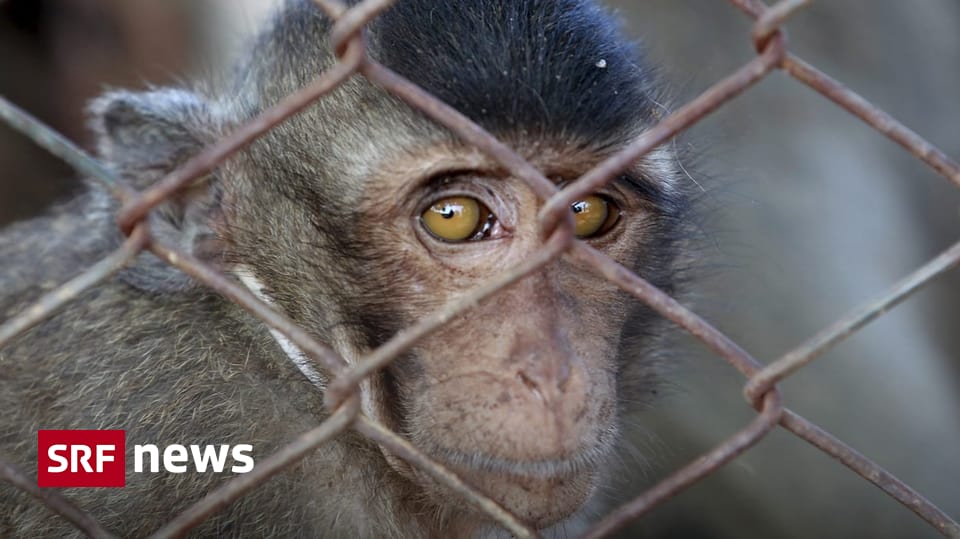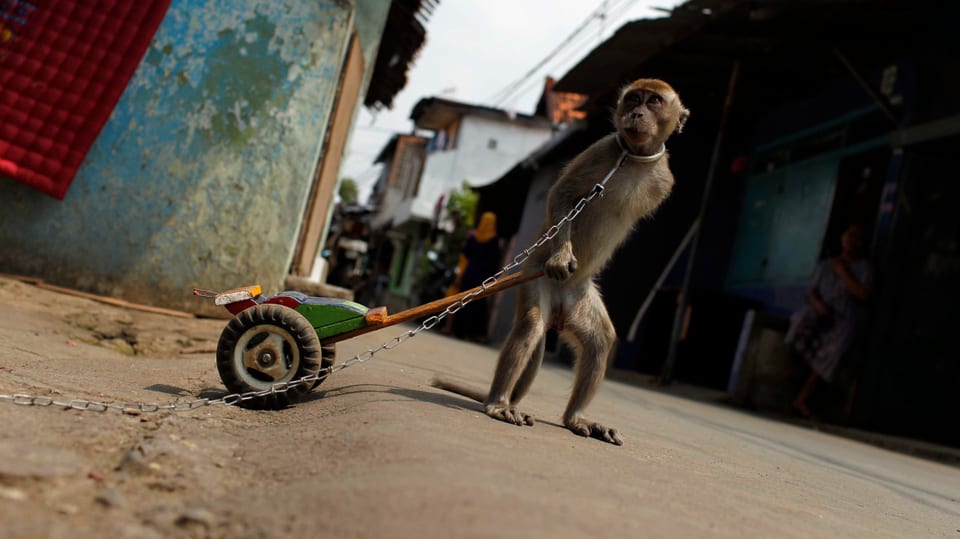
Baby monkeys have been tortured for videos. Subscribers can be found all over the world, according to BBC research.
The BBC has uncovered a brutal global monkey torture ring stretching from Indonesia to the US. According to the report, hundreds of clients in the US, UK and elsewhere have paid Indonesians to torture, kill and film young macaque babies.
According to research, the torture ring started on YouTube before spreading to private groups on the encrypted messaging app Telegram. In Indonesia, authorities are now cracking down on those who wrote the brutal videos, and arrests have already been made, the BBC reported.
Perverse ideas about torture as a screenplay
BBC journalists secretly accessed the Telegram group. Hundreds of people would gather there to develop extreme torture ideas. People were then hired to execute and film the false programs in Indonesia and other Asian countries.
BBC journalists expose torture ring
According to British State Radio, at least 20 people around the world are now being investigated. Three of the women, who live in Great Britain, were briefly arrested by police last year.
Monkeys are often mistreated
Why did Western sadists choose Asia and Indonesia in particular to torture and kill animals? ARD Southeast Asia correspondent Anna Lou Beckmann tells SRF News that it may have something to do with the fact that the monkeys have a completely different situation than here.
This is pure brutality.
“For some families, for example in Java, a small, trained monkey is an important source of income and thereby livelihood.” Monkeys are trained and misused as tourist attractions – for example little monkeys riding bicycles or dancing animals in tutus. “The animals are caught illegally in the wild and trained in the slums of Jakarta,” says Beckman.
A billion dollar wildlife business
The monkeys are bound with zip ties and left to stand for months before being allowed to walk upright and dance to entertain tourists. “This is pure animal cruelty,” says Beckman. However, the animal trade in Asia, although largely prohibited, is a billion-dollar business that competes with the drug and arms trade.

Purana:
Trained and chained to tourists: A baby monkey on a street in the Indonesian capital, Jakarta.
REUTERS/Beawiharta
For example, in Thailand, monkeys are also used as slaves to harvest coconuts. “We have to climb palm trees and pick coconuts. “The monkeys often pull their teeth so they can’t bite the staff,” says Beckman. The animals are kept in small cages or on chains.
The police and judiciary are largely powerless
In many Asian countries keeping and torturing wild animals in this way is actually prohibited – but the practice is still widespread.
“In Indonesia, for example, there are raids on live animal markets – but the police meet the traders with violence, or the police officers are bribed from the beginning, and the dealers know when they are coming,” said the ARD reporter.
Additionally, there is a lack of enforcement of sanctions at the judicial level. Keeping wild animals is illegal in Thailand – and many coconut plantation owners do. But none of them were punished,” the journalist complains.

“Wannabe pop culture fanatic. Zombie advocate. Entrepreneur. Internet evangelist. Alcohol fanatic. Typical travel buff.”




More Stories
Choosing the Right Quality Management Software for Your Industry
If guests bring items: Can shower gel be packed from the hotel?
This diet can prevent death from dementia